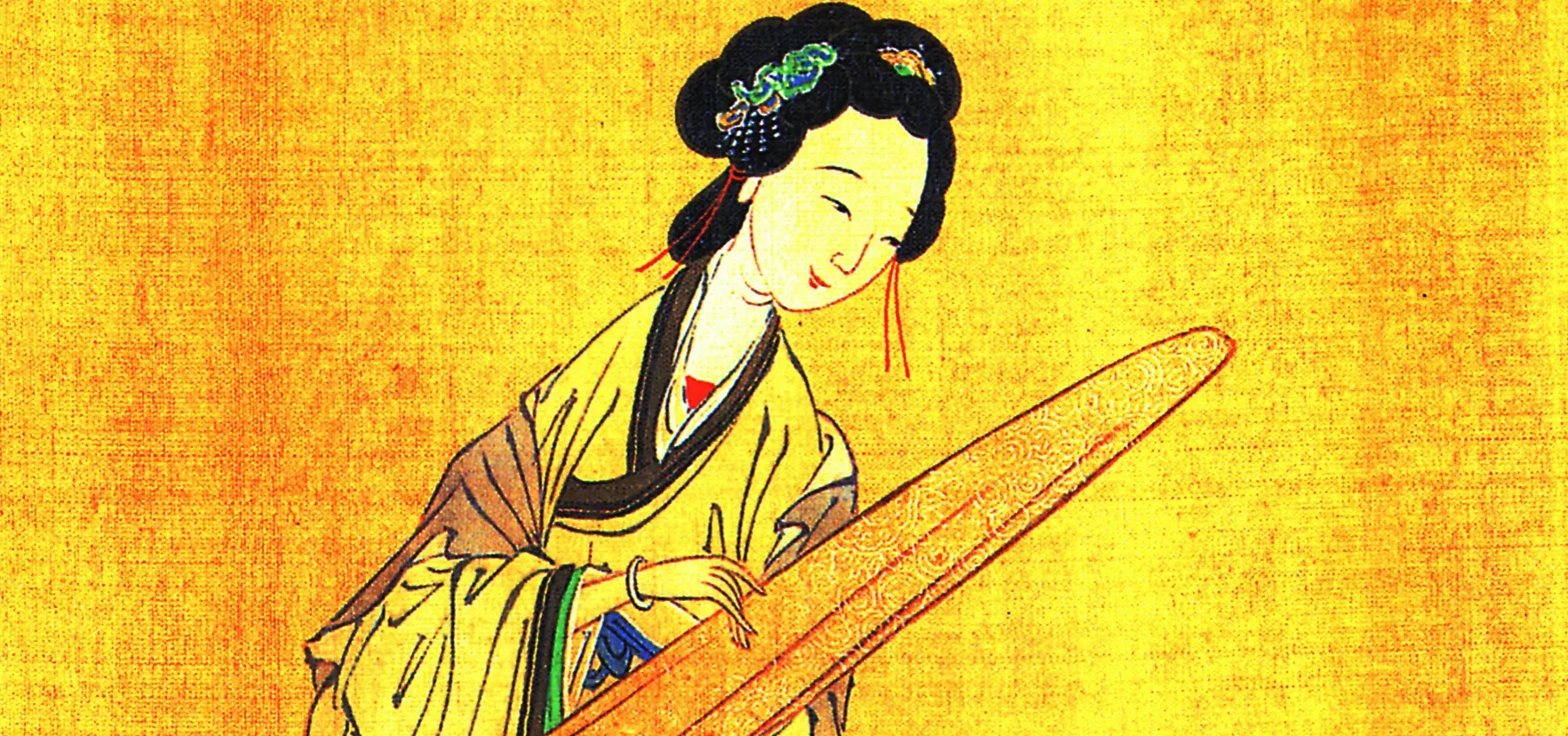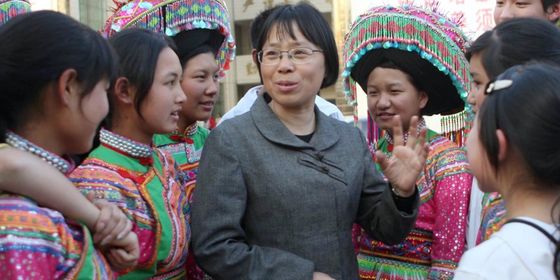When did it become unacceptable for widows to remarry in ancient China?
There are many achievements for which a person might get a trophy today—but in ancient China, having your husband die, and then following society’s dictates of chastity for the rest of your life, was enough to get you a whole monument if you were a woman.
During the Warring States period (475 – 221 BCE), it’s said the king of the State of Wei gave one beautiful widow the title Gaoxing (高行), meaning “unsullied character,” after she cut off her own nose rather than accept the proposal of the king’s chancellor. The name was meant as a great honor, and the story was later recorded in Biographies of Exemplary Women (《列女传》), a book by scholar Liu Xiang (刘向) of the Han dynasty (206 BCE – 220 CE).
That was just one of many cases in which widows in ancient China resorted to self-harm or even suicide to protect their reputation for chastity. It took over 2,000 years for Chinese widows to finally get rid of these oppressive and exploitative norms.
The ideal of the chaste widow in China emerged as early as the Spring and Autumn Period (770 – 476 BCE). According to The Commentary of Zuo (《左传》), a narrative history written from the 8th to 5th centuries BCE, Xigui (息妫), the wife of the king of the State of Xi, was forced to marry the King of Chu after Chu conquered Xi. But even after Xigui gave birth to two sons, she never voluntarily spoke to her new husband. The king asked why, and she answered: “As a woman, I married two husbands. Since I cannot die, what is there for me to say?”
This might have been the earliest record of a woman declaring that she should only be married to one man. But at that time, widows’ remarriage was not forbidden. Chastity was more of a personal preference, usually open to affluent widows without an economic need to remarry, rather than a social norm.
However, during the Qin dynasty (221 – 206 BCE), the first emperor Qin Shi Huang stated, “If a widow who has a son gets married again, it’s a betrayal to her husband and unchaste.” This statement was documented in The Records of the Grand Historian (《史记》) by Sima Qian (司马迁) of the Han dynasty, which replaced the Qin.
But there seemed no recorded punishment for widows who remarried, and there were no restrictions on remarriage at all on widows who didn’t have sons. Sima Qian also wrote that Qin Shi Huang once built a tower for a widow named Qing to commend her chastity, since she never got married again after her husband died.
In the Han dynasty, the government continued rewarding chaste widows. Historical records showed that Emperors Xuan and An both rewarded chaste widows with fine textiles and grain, several hundred years apart.
But it was still very common for Han dynasty widows to remarry. Princess Pingyang, the elder sister of Emperor Wu, married the powerful military general Wei Qing (卫青) after losing both her first and second husband. Zhuo Wenjun (卓文君), a talented lady from a rich family, married essayist Sima Xiangru (司马相如) after her first husband died, and theirs was one of the most famous romances in Chinese history—indicating the practice certainly wasn’t frowned on. In the Jin dynasty (265 – 420), there was even a case recorded in The Book of Jin (《晋书》) that a woman’s in-laws persuaded her into remarrying after her husband died because she was so young.
In the Sui dynasty (581 – 618), laws began to impose restrictions on widows’ remarriage. Widows whose late husbands were government officials of the ninth rank or above were not allowed to remarry.
However, in the following Tang dynasty (618 – 907), the government started encouraging widows to remarry in order to increase the birth date. Emperor Taizong once issued an edict requiring widowed people to apply for remarriage to local government, and if officials managed to get them married quickly, this reflected favorably in their performance review.
Famous poet Bai Juyi (白居易) even wrote a poem titled “Misery of Women (《妇人苦》),” pointing out that it’s unfair to forbid a widow to remarry. “It’s said husband and wife should be close as one. But when it came to life and death, their misery is never fairly shared...If a woman’s husband dies, she could only spend the remainder of her life with children...but if a man’s wife dies, though he feels grief, he could quickly remarry like a willow can sprout again after its twigs were snapped...we should know the hardship and misery a woman is faced with, and stop looking down on them.”
The seismic change took place in the Song dynasty (960 - 1279), when Neo-Confucians such as Cheng Yi (程颐) put a strong emphasis on chastity. In his philosophical text Reflections on Things at Hand (《近思录》), Cheng stated it was shameful for a man to take a widow as a wife, because “if one takes someone who has lost her integrity, he would lose his.” When asked about poor widows who might starve if they didn’t marry again, Cheng answered, “It’s a small matter to starve to death; while it’s a great matter to lose one’s integrity.”
As such thoughts spread, widow remarriage remained common, but became stigmatized. The laws also stipulated if a widow remarried, she couldn’t inherit her first husband’s property. In the Yuan dynasty (1206 – 1368), the law even forbade a widow from taking her own dowry with her if she remarried, meaning all her personal properties belonged to her first husband’s family.
In the Ming (1368 – 1644) and Qing (1616 – 1911) dynasties, widow chastity became increasingly prominent. The government would award “testimonials of merit (旌表)” to chaste widows: those who never married again all their lives, those who committed suicide in order to resist rape, and those who killed themselves after their husbands died. Zhu Yuanzhang (朱元璋), the first emperor of the Ming, ruled that if a widow lost her husband before 30 and didn’t remarry after 50, her family would be exempted from corvee labor, giving an incentive to families also to pressure women to stay single after widowhood.
Another incentive, to both families and the women themselves, were large ceremonial arches (paifang) that the government would construct to honor chaste widows. These “chastity arches (贞节牌坊)” did not bear the widow’s personal name, only her surname or her husband’s family name, meaning the whole family was included in the honor. Qing scholar Fang Bao (方苞) once wrote a biography for a chaste woman surnamed Kang, who was said to be engaged to a poor man named Zhang Jing who died before they married. Kang then hanged herself, even though she was not yet Zhang’s wife. The government awarded Kang’s family a testimonial of merit, and her family enjoyed great fame afterward.
Besides patriarchal views on women’s sexuality, widow chastity was also considered important for safeguarding the family’s lineage. If a widow had sons, her main responsibility was to raise these descendants of her late husband’s family. Qing authorities, compared to the Ming, also put less prominence on widow suicides and instead encouraged them to remain chaste in order to focus on caring for their children and aging in-laws.
With such values being promoted across society, it’s no surprise that the number of chaste widows ballooned in these periods. According to studies by the 20th-century historian Dong Jiazun, before the Song dynasty, there were only 92 women in total who received awards for chastity. However, in the Ming dynasty alone, there were over 27,000. Historian Guo Songyi (郭松义) states in The General History of Chinese Women (《中国妇女通史》) that the Qing dynasty saw over 1 million women commended by the government for their chastity.
Today, these ancient chastity paifang can still be found in many places in China. From the few characters written on them, one can’t tell how many women lost their happiness, health, and even life for this “honor.” As 20th-century writer Lu Xun (鲁迅) puts in his essay “My View on Chasity (《我的节烈观》)”: “Chaste women were pitiable people, who were unluckily to fall into the unconscious trap of history and numbers and make a nameless sacrifice. They deserve a memorial ceremony.”













